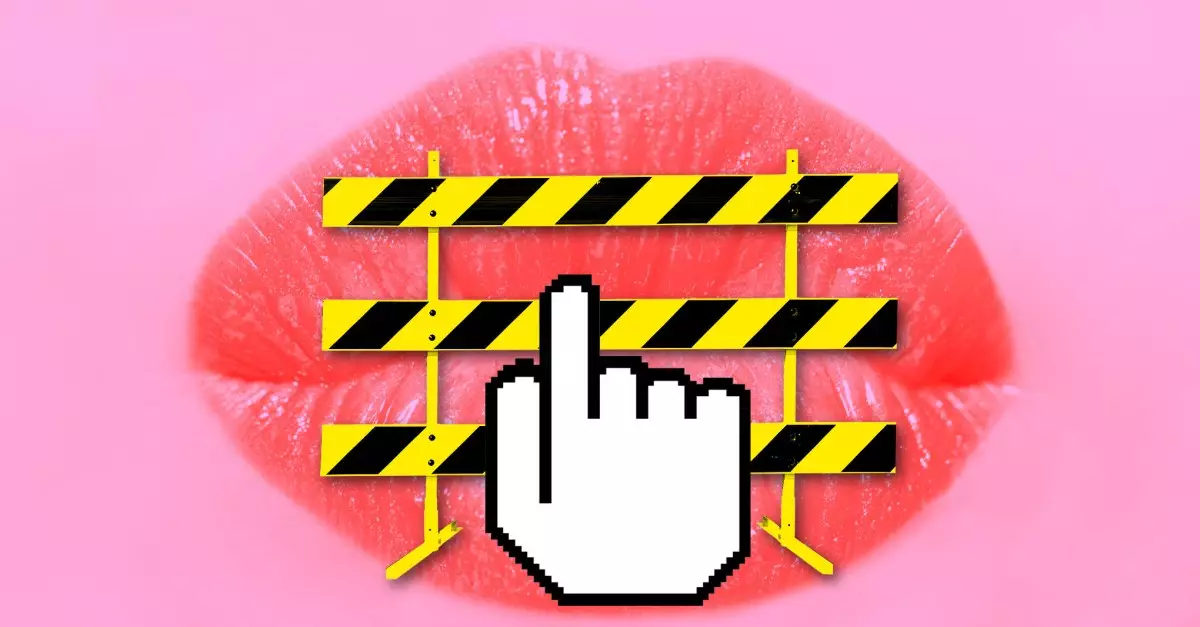In recent years, the landscape of digital content distribution has become increasingly dictated not by the creative community or consumer demand but by the often unseen influence of financial institutions. Payment processors such as Visa, Mastercard, and major credit card companies wield an outsized power, dictating what content can or cannot be monetized across platforms. This shift reveals a troubling erosion of autonomy for creators, especially in niche markets like adult and indie gaming. The recent moves by platforms like Itch.io exemplify how economic leverage can override artistic freedom, pushing them into a corner where compliance becomes a survival strategy rather than a matter of creative choice.
This trend raises profound questions about the future of open markets in the digital age. When the key to a platform’s existence hinges on the approval of corporate payment partners, the boundaries of acceptable content are effectively determined not by community standards but by the policies of financial gatekeepers. Itch.io’s decision to deindex adult content—without prior warning—mirrors how larger platforms such as Steam face similar pressures. The narrative is clear: financial institutions prioritize their risk mitigation over the diverse expression that has long fueled the growth of indie and adult gaming communities. This reliance on payment processors introduces a chilling effect that threatens the very ethos of open and independent digital markets.
The Consequences of Economic Censorship for Creativity and Diversity
The abrupt deindexing of adult titles from Itch.io underscores another stark reality: the fragility of creative ecosystems when they are tethered too tightly to external financial interests. For creators relying on these platforms to showcase their work, the absence of prior warning and clear guidelines can be devastating. Creators find themselves blindsided, often losing access to their own content and revenue streams at a moment’s notice. This kind of economic censorship doesn’t just impact individual developers; it diminishes the diversity of content available for consumers, ultimately narrowing the scope of creative expression.
Moreover, the dynamics of the indie gaming scene—long celebrated for its innovation and boundary-pushing ideas—are now under threat. As platforms buckle under financial pressure, the risk is tipping toward homogenization, where only content deemed “safe” by corporate or financial standards survives. The precedent set by Steam’s and Itch.io’s recent actions signals a shift away from the fertile ground that once nurtured niche and controversial works. Instead, we risk fostering a climate where compliance with financial policy becomes a prerequisite for survival, stifling innovation and marginalizing dissenting voices.
The Erosion of Digital Freedoms and the Rise of Self-Censorship
The broader implication here is a creeping suppression of digital freedoms once thought protected by the open internet ethos. As platforms alter their policies to appease payment providers, creators are compelled to engage in self-censorship. The threat of content being deindexed or outright removed acts as a chilling reminder that artistic expression must now navigate the ever-changing terrain of financial regulation.
The parallels with Tumblr’s banning of adult content in 2018 are not accidental. That decision was largely driven by external financial pressures, leading to a mass departure of users seeking platforms more tolerant of their content. This pattern—where corporate interests and financial gatekeeping override user rights—appears to be repeating itself. The implication is unsettling: digital spaces that once celebrated freedom of expression are increasingly becoming dependent on the whims of banks and card networks. This trend signals a future where creators must constantly second-guess their work’s eligibility for monetization, which could have a chilling effect on creativity itself.
It’s imperative to question whether the current reliance on payment processors is sustainable or if it merely shifts the power to unseen corporate interests. The future of digital markets depends on whether creators and consumers can reclaim some control, pushing back against the encroachment of financial censorship. Until then, the narrative of creative freedom is increasingly written by the algorithms and policies of institutions that prioritize risk mitigation over artistic diversity.

